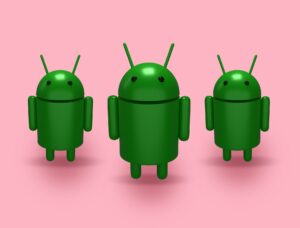Linux is a Unix-like community development and open-source operating system (OS) for mobile devices, computers. This will support on almost every central computer platform, like x86, ARM, and SPARC. They are making it one of the most broadly supported operating systems.
Just like iOS, Mac OS, Linux, Windows is all operating system. In fact, one of the most popular pulpit on the planet, Android, is also worked by the Linux operating system. The operating system is that software that controls all the resources with hardware that is associated with your laptop and desktop. In simple language, the operating system manages the communication between your software and your hardware. Without the operating system (OS), the software wouldn’t function.
Linux is as much an experience as it is an operating system. Understanding why Linux has become so successful is significant to understand a little bit about its history. The preliminary version of UNIX was essential developed several decades ago, which was an incredibly researched operating system in colleges. High-powered desktop workstations from organizations like the sun increased in the 190s. And they were all based on UNIX. Some of the companies that entered the workstation field take part against the suns, HP, IBM. Unfortunately, each one had its own version of UNIX, which made the deal of software a bit intractable. Windows NT was Microsoft’s answer to this marketplace. NT offers the same features, which also have the UNIX operating systems security. Which also supports various CPUs, large-scale memory, disk management. But it does it in a way that is agreeable with most Windows appositeness.
The entry of Microsoft into the high-end workstation arena created a strange dynamic. Separate companies own the occupancy operating systems. And lack of central authority in the UNIX. But most of people have issues with Microsoft. Linux stepped into this uneven landscape, confiscating a lot of attention.
The Linux kernel, designed by Linus Torvalds, was made ready to the world for free. Torvalds then proposes that other people add on the seed if they keep up the contributions for free. Hundreds of programmers start working to raise operating systems and Linux for its growth. This is also because it is free and runs on the PC platforms. It gained a sizeable audience among hard-core developers very quickly. Linux has a dedicated following and fascinating to several varied kinds of people:
- The person who already knows UNIX and wants to work it on PC-type plumbing.
- The people who want to experiment with the principles of operating systems.
- The person who wants or needs the best deal to manage over the operating system.
- The people who have personal issues with Microsoft.
How Is The Linux Operating System Used?
Every version of the Linux OS control hardware resources, launches, and handles applications. And offer some form of the user interface. The inordinate community for developers and a wide range of distributions. This also means that the Linux version is available for almost any task. And Linux has penetrated various areas of computing.
The Linux OS can be found in various settings, assisting with several use crises. There are some ways by which Linux is used for:
- Server OS for web servers, file servers, email servers, and other types of server shared. They were designed to support high-volume and multithreading applications. Linux is well-suited for all kinds of application servers.
- Desktop OS for personal productivity computing. Linux is an open-source and easy-to-use application that is also available on desktops for users. Especially those who promote it to commercial OSes.
- Headless server OS for the systems which not need any graphical user interface(GUI). And not connect to any terminal or keyboard. Headless schemes are often used for remotely dominant networking servers and other devices.
- Embedded devices are appliances Of OS for the syst, es that need computing function. Linux is used as an enclosed OS for a variety of applications. Which also have some households appliances and automotive entertainment systems.
- Network OS for switches, domain name system, routers devices. For example, Cisco offers a version of the Cisco (IOS)Internetwork Operating System, which is used by the Linux kernel.
- Software Development OS is basically for enterprises. However, many developing devices have been ported to Windows or other OSes. Linux is home for most of the wide-open source software development tools. For example, evacuate for distributed source control; vim and emacs for source code editing. And compilers interpreter most of the programming language. There are some coding bootcamp scholarships available all over the world, which will offer you the best knowledge about Linux application.
- Cloud OS for cloud instances. Major Cloud Computing providers give access to cloud computing instances. They are running for the desktops, servers, and some other services.
What Are The Types Of Linux Operating Systems?
The Linux operating system is one of the unique operating systems used on networks and other media today. This is best for the business computer servers. But sometimes, different Linux Flavours have also been used for laptops, desktops, mainframe machines. Google’s Android operating system for tablets and smartphones. As well as its Chrome OS system for computers pronounced Chromebooks, are both based on Linux. Other types of Linux systems are better suited for different purposes.
Debian, Ubuntu, and Mint Distributions
Another longstanding Linux distribution is Debian, which was founded in 1993. It was made to open the contributions from the user community and is still managed by a non-commercial group. This group is also known as Debian Project, which is mostly communicating device access to the Internet. It holds hundreds of packages that represent many sets of software tools. This can also be connected using its container handler tool, known as APT.
After an ancient African word meaning “humanity to others.” in 2004, a South African developer-entrepreneur and his colleagues created Canonical, which makes a Linux Distributer on its own, which is Ubuntu. Based on Debian, it is for everyone without any cost and is among the most widely used for flavors of Linux. Canonical provides regular official releases of the support and systems for interested paying users.
Red Hat, Fedora, and CentOS
Another company behind a widespread distribution of Linux is Red Hat, which also got its start in 1994. It took its name from a red Cornell University cap habitually worn by one of its founders when he worked helping fellow students in a lab at Carnegie Mellon University.
Red Hat’s core system, known as Red Hat Enterprise Linux. Which is created to be stable, viable, original to sell in stores alongside the software. Like Microsoft Windows and versions of Apple’s Macintosh operating systems. It’s proven to be a hit among companies interested in a solid and stable version of a Linux operating system.
Security-Focused Linux Operating Systems
A few Linux-based operating systems are developed with security in mind. They are designed to be run from a USB stick or a DVD rather than regularly installed on a computer. One is Tails, short for The Amnesiac Incognito Live System. It automatically uses various encryption tools, including the Tor network of anonymizing router software, to keep user data safe and anonymous. It’s designed to leave no data behind on computers unless you explicitly instruct it to do so.
A system known as Subgraph OS is a Debian-derived system designed to be installed on a computer permanently. But to use encryption and other techniques to keep data safe. It also heavily impedes what part of the system each statement has entrance to through a process known as sandboxing that is commonly used with smartphone operating systems. Subgraph OS is currently in alpha, meaning it’s still in an experimental state.
Google’s Android and Chrome OS
Android, the Google-developed tablet operating system, and smartphones which is very popular over the universe. Which is based on Linux (its operating system kernel is the Linux kernel). But, The rest of the android phone software is different from the typical Linux servers and desktops. And software for standard Linux distributions regularly can not be run immediately on Android, nor can Android software. It will not process without the help of typical Linux channels.
Similarly, Chrome OS, another Google operating system, is also high on Linux. It’s more precisely compatible with dominant Linux software. Moreover, this is simple to download for various Chromebook computers. It is not essential to use tools of Linux for Chromebook. Many people prefer simple to use chrome and other built-in tools on the machines.
Some Advantages Of Linux
- The significant benefit of Linux is it is an open-source operating system. That indicates that this code source is deducted to contribute and is this is also available for everyone. Change and share the code with anyone without any permission.
- In the line of safety, Linux is more secure than any other operating system. It is not that Linux is 99% secure and safe. It has some of the malware. But it is less vulnerable than any other operating system. So, it does not need any anti-virus software.
- The updatatiuon process of this software is easy and frequent.
- Many Linux Distributions are applicable so that you can use them according to your needs and your tastes.
- It is a free application on the Internet.
- It also has colossal community support.
- It offers high stability. It rarely slows down or freezes if there is no need to reboot it after a short time.
- It maintains the privacy of the customer.
- The completion of the Linux system is extremely expensive than other operating systems. It grants a large number of people to work simultaneously, and it manipulates them efficiently.
- It is network-friendly.
- The adjustable of Linux is high. There is no need to download a whole Linux suit. You only grant to install the required components.
- Linux is agreeable with a considerable number of file arrangements.
- It is quick and light to establish from the network. It can also invest in any hardware, even on your old machine mode.It completes all assignments correctly, even if it has confined space on the hard disk.
Essential Components and jargons of Linux
The Linux OS system incorporates several different components, including:
- Bootloader. A bootloader is responsible for managing the boot process of the computer and for starting the Linux kernel. It can also be used to manage systems that boot more than one OS.
- Kernel. The core of the Linux system, the kernel, handles network access record applications and processes. That manages virtual peripheral devices and oversees all file system services. The Linux kernel is the software that interfaces directly with the computer hardware.
- Init system. The first process to run once the kernel is loaded. A process is an instance of a program running on a computer, and the init system initializes the system to enable it to run other methods. Init is a daemon program that acts as the parent process to all other processes running on the system. Init can be configured to start specific functions at system initialization. For example, when the system is running a web server, the init system can be configured to load all necessary web server software.
- Daemons. This is a program that runs in the background, handling service requests. A web server running on a Linux server depends on a daemon, usually named httpd, to listen for web server requests.
To Sum It Up:
From supercomputers to smart cars, home appliances, home desktops. This Linux operating system is ubiquitous. Linux has been nearby since the mid-1990s and has now reached a user base that spells the globe. Linux is actually everywhere. You can find this in your cellphones, cars, Roku devices, televisions, and many more. It also covers most of the Internet, all of the world’s top 499 disk drives, and the world’s merchandise transfers.
But beyond this platform of choice. At the same time, running the servers, desktops, and installed systems across the globe. Linux is one of the most dependable, secure, and worry-free operating systems obtainable. Here is all the information you need to get up to speed on the Linux platform.
Also, Read Some Engrossing Information About What Do You Understand By Id Tech.
How useful was this post?
Click on a star to rate it!
Average rating 0 / 5. Vote count: 0
No votes so far! Be the first to rate this post.



